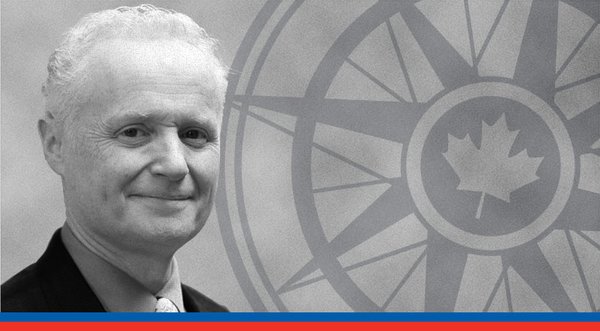Economists Gérard Bélanger and Jean-Luc Migué have an interesting piece in the National Post of 5th October arguing against some of the case I make in Fearful Symmetry attributing the rapid growth in government in Canada to a combination of the rise of the Boomer generation and a separatist Quebec nationalism.
One of the main points they raise against my argument is that growth in government was occurring all over the world, and especially in the western world, and therefore to attribute the growth in government in Canada to these two factors in Canada is to miss the larger picture of change affecting all western societies.
This would be a fair criticism, if it were true. But of course it isn’t. Indeed I spent an important part of the book tracing the growth of government spending in Canada, comparing it to our counterparts in the US (with whom we shared almost identical patterns of government growth for over a century, until the 1960s), and demonstrating that there were in fact two “camps” among Western industrialised societies. One was essentially the US, Canada and Australia, the other was much of Western Europe. The first group proved remarkably more resistant to the growth of government than the latter. But Canada in the Sixties and Seventies essentially changed teams. After a century of following in America’s footsteps, we suddenly and brutally changed camps. Over the ensuing few decades, America’s share of GDP devoted to government rose 6 percentage points. Ours rose over 20. As I say in the book, the zeitgeist in favour of larger government no doubt explains part of the growth in Canada. But it is the speed and size of the change over such a short period, that requires supplementary explanation in Canada, especially since the political class remained committed to small and limited government right up until the early 1960s, as I again show in the book.
As for the rise of a separatist Quebec nationalism only emerging in the 1970s, Migué and Bélanger must have lived through a very different history than I did. The Sixties were a time of radical nationalist ferment that was frightening the life out of the political class in Ottawa. The B&B Commission was named in response. The PQ was formed in the late Sixties from the merger of two other separatist political parties that had been agitating for some time. This was the time that mailboxes were blowing up in Montreal and the FLQ was issuing manifestos. Jean Lesage won the 1960s election on a platform of Maîtres chez nous, and Daniel Johnson won the 1966 election on the slogan of Égalité ou indépendence. The federal Liberal Party went and recruited les trois sages (Trudeau, Marchand and Pelletier) in the mid-Sixties as an attempt to strengthen their response and Trudeau was clearly made leader of the party because he was seen as the man able to respond forcefully to what was happening in Quebec, as indeed he did in the FLQ crisis in 1970.
It is historical revisionism pure and simple to say that because the PQ only made its entrée into the National Assembly in 1970 with a quarter of the vote or because the first referendum only occurred in the late Seventies (with half of French-speakers voting to give the government a mandate to negotiate sovereignty-association) that therefore nothing had happened in the decade preceding or that politicians in Quebec City and Ottawa were not already responding to the rise of a separatist nationalism in the province.


